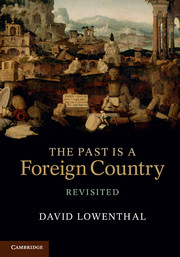7 - Memory
from Part III - Knowing the past
Published online by Cambridge University Press: 05 November 2015
Summary
The poor, short, lone fact dies at the birth: Memory snatches it up into her heaven, and bathes it in immortal waters. Then a thousand times over it lives and acts again, each time transfigured, ennobled.
Ralph Waldo Emerson, 1857The present … is ever closely bound up with the past, and the cord which unites them is all woven of strands of memory… On the soundness of that cord we often hang honour, love, faith, justice, things more precious than life itself. Our reluctance to test its strength [is] as senseless as that of Alpine travellers who should refuse to try the rope … to support them over the abyss.
Frances Power Cobbe, 1866When I was younger I could remember anything, whether it happened or not, but I am getting old, and soon I shall remember only the latter.
Mark Twain, c. 1908The past is what you remember, imagine you remember, convince yourself you remember, or pretend to remember.
Harold PinterMemories are forever.
Lois Lowry, 1993All past awareness depends on memory. Recollection recovers consciousness of former events, distinguishes yesterday from today, and confirms that we have a past. Indeed, remembering objects, events, patterns, and people, concludes a developmental psychologist, ‘is the sine qua non of cognition’. And mnemonic effort – recalling people to be seen, things to be done, routes to be taken – secures the future via the past.
Yet how memory works and gets verified, saved, and altered remains, after a century and a half of research, much misunderstood. Memory experts – neurologists, psychologists, teachers, trial lawyers, autobiographers, gerontologists – have only begun to converse with one another. Brain-storage areas and synapses that conduct memories, arts of memorizing, the sediment of emotional recall, the fallibility of eyewitnesses, amnesia’s causes and consequences were each studied in virtual isolation.
- Type
- Chapter
- Information
- The Past Is a Foreign Country – Revisited , pp. 303 - 332Publisher: Cambridge University PressPrint publication year: 2015

